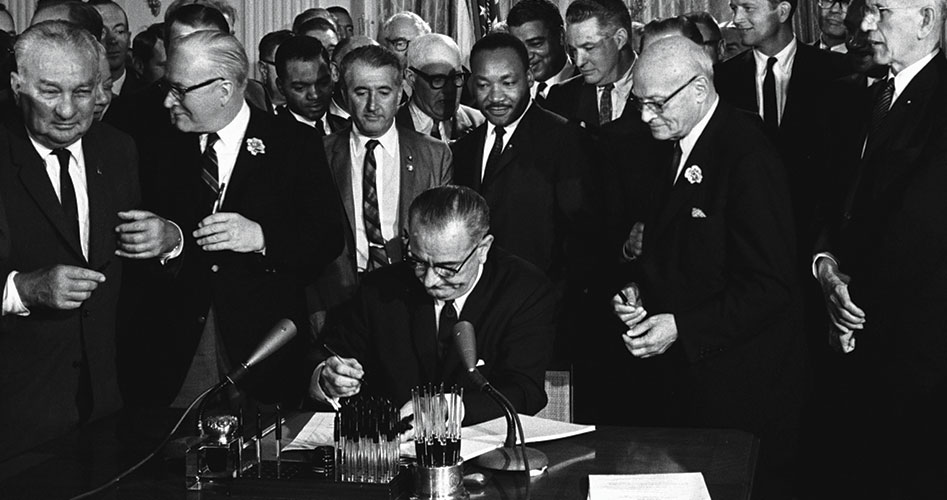The Uncivil Civil Rights Act
Conservative views are often unjustly linked to racism by harkening back to the topic of civil rights and especially to the Civil Rights Act of 1964, which conservatives fought against. Simply linking someone to disagreement with the hallowed act is expected to carry the day. It shouldn’t.
There’s no denying that some who opposed civil rights legislation were racially motivated. But the act should be judged on its merits or demerits. Some opponents of the act, for instance, insisted there is no such thing as a “civil” right. They added that attributing rights to a “group” is untenable. Also, government can’t legitimately grant rights because what can be granted by a government can later be canceled by that same government, meaning that what is granted is a “privilege.” Isn’t this one of the reasons why America’s Founders thundered that men were “endowed by their Creator with certain unalienable rights.” If a Creator is the source of rights, only He can legitimately dissolve them. Hence, the United States is different — or at least it was different when it was founded.
Consider the real-life consequences of government-granted “rights.” Both the former Soviet Union and the current United Nations issued a long list of rights that each person is supposed to enjoy. However, each right was followed with an assertion that the “right” can be suspended by law. In the USSR, all rights were indeed suspended.
JBS Member or ShopJBS.org Customer?
Sign in with your ShopJBS.org account username and password or use that login to subscribe.

 Subscribe Now
Subscribe Now
- 24 Issues Per Year
- Digital Edition Access
- Exclusive Subscriber Content
- Audio provided for all articles
- Unlimited access to past issues
- Cancel anytime.
- Renews automatically

 Subscribe Now
Subscribe Now
- 24 Issues Per Year
- Print edition delivery (USA)
*Available Outside USA - Digital Edition Access
- Exclusive Subscriber Content
- Audio provided for all articles
- Unlimited access to past issues
- Cancel anytime.
- Renews automatically


